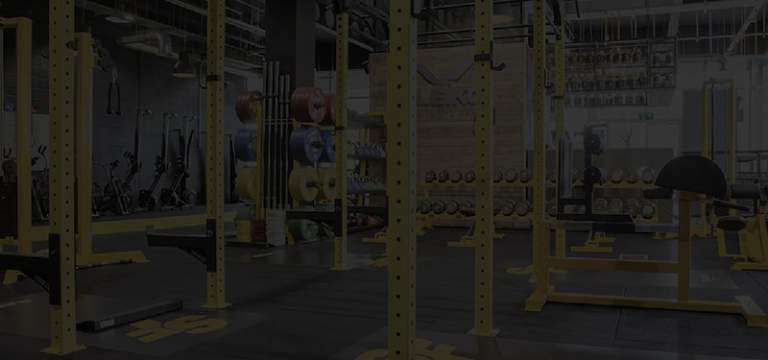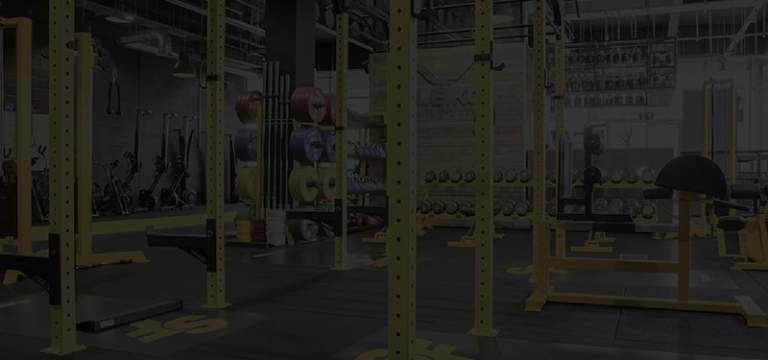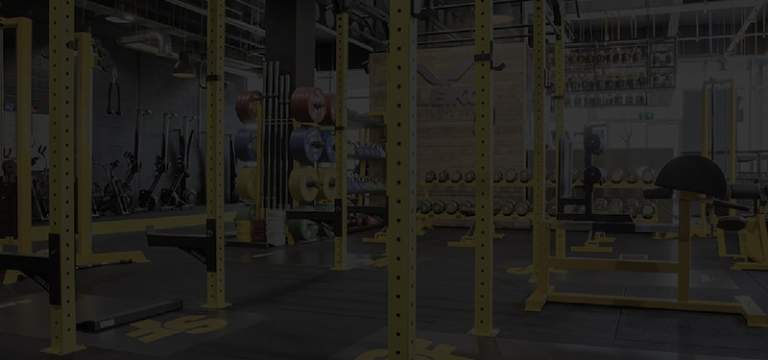Not all gym equipment suppliers are created equal. If you’re planning to launch a fitness facility or upgrade an existing one, the vendor you choose will directly impact more than just the machines on your floor—it will shape your gym’s identity, reliability, and growth potential. This isn’t a simple purchase; it’s a partnership decision. That’s why knowing what to look for in a gym equipment supplier is just as important as choosing the right equipment.

Why Does Choosing the Right Gym Equipment Supplier Really Matter?
Behind every smoothly running gym is a supplier you can count on. This decision ripples through your business in ways that go far beyond cost or catalog variety. If you’re not sure where to begin, understanding the core factors outlined in How to Choose Gym Equipment Supplier can provide a clearer path forward. The right supplier helps you maintain consistent equipment uptime, ensures safer workouts for members, and reduces long-term repair expenses. A poor supplier, on the other hand, can lead to breakdowns, liability risks, and a reputation that’s hard to fix.
When you choose the right partner, you’re not just buying gear—you’re building a foundation for sustainable performance and client satisfaction.
Here’s how the choice affects your business:
- Impacts equipment reliability and lifespan
- Influences member satisfaction and retention
- Affects maintenance response time and safety compliance
- Determines long-term ROI and total cost of ownership
- Shapes the consistency of your gym brand across locations
What Types of Gym Facilities Need Specialized Equipment Suppliers?

Whether you run a large commercial chain or a university fitness center, your supplier should understand your facility’s unique needs. The right partner won’t just sell—they’ll advise, plan, and tailor their solutions to fit your specific goals.
Commercial Gyms and Fitness Chains
These operations need high-capacity, durable machines with consistent branding across locations. Suppliers must offer scalable solutions and support centralized purchasing models.
Boutique and Studio Gyms
Style matters here. Custom finishes, compact footprints, and functional training setups are often essential. Suppliers should offer creative configurations and aesthetic flexibility.
Hotel and Hospitality Fitness Centers
Equipment needs to be intuitive and durable with minimal upkeep. Suppliers must offer compact, multi-use machines and seamless after-sales support for staff without fitness expertise.
Schools, Colleges, and Universities
These facilities demand robust machines to withstand high traffic. Compliance with safety standards and long-term serviceability are critical.
Government, Fire, and Military Fitness Facilities
Suppliers must meet strict procurement guidelines and provide rugged, tactical-grade equipment designed for performance and endurance.
Physical Therapy and Rehabilitation Clinics
Precision matters more than power. Equipment must support low-impact, adjustable, and rehabilitative use. Suppliers must understand clinical needs and medical equipment standards.
What Are the Signs of a Trustworthy Gym Equipment Supplier?
Before you get dazzled by product catalogs or flashy showrooms, look deeper into how the supplier operates. A reliable partner will be transparent, accountable, and easy to reach—even after the sale is made.
Traits of a dependable supplier include:
- Transparent pricing with no hidden fees
- Valid industry certifications and equipment testing standards
- Clear warranty policies and responsive after-sales support
- Real-world case studies and positive client testimonials
- Proven track record in the industry, not a fly-by-night vendor
- Local maintenance teams or service partners with quick dispatch capability
What Key Questions Should You Ask Before Partnering with a Supplier?
Asking the right questions helps you uncover what brochures won’t tell you. Be direct and precise—how the supplier responds will tell you more than any product sheet.
Critical pre-purchase questions include:
- Do you provide local maintenance and service?
- Are replacement parts stocked or ordered per need?
- What does your warranty cover, and for how long?
- Can I visit an existing facility using your equipment?
- Who handles equipment installation and calibration?
- Do you offer equipment training for staff?
If answers are vague or overly rehearsed, consider it a warning. Reliable suppliers are transparent and confident in their processes.
Should You Choose New or Used Equipment from a Supplier?
Deciding between new and used equipment depends on your budget, timeline, and facility type. Some suppliers offer both, which can give you flexibility—if you understand the trade-offs.
Here’s how the two compare:
- New Equipment:
- Higher upfront cost
- Includes manufacturer warranties
- Latest features and technologies
- Longer life expectancy
- Used/Refurbished Equipment:
- Lower cost
- May have limited or third-party warranty
- Faster availability
- Risk of unknown wear or past misuse
A supplier offering certified refurbished machines with full inspection reports and service history can provide strong value without excessive risk.
What Certifications and Standards Should a Supplier Meet?
A reputable gym equipment supplier should back their products with verifiable safety and quality certifications. These aren’t just formalities—they’re safeguards for your business and your members.
Common certifications to look for include:
- ISO 9001 – Confirms the supplier follows international quality management systems
- CE Marking – Required for equipment sold in Europe; ensures health, safety, and environmental compliance
- UL Listing – North American safety certification for electrical components
- ASTM/EN Standards – Industry-specific performance and safety standards for fitness equipment
- Local Codes (e.g., OSHA) – Ensures the equipment aligns with workplace safety laws in the U.S.
What Are the Signs of a Trustworthy Gym Equipment Supplier?
Before you get dazzled by product catalogs or flashy showrooms, look deeper into how the supplier operates. A reliable partner will be transparent, accountable, and easy to reach—even after the sale is made.
Traits of a dependable supplier include:
- Transparent pricing with no hidden fees
- Valid industry certifications and equipment testing standards
- Clear warranty policies and responsive after-sales support
- Real-world case studies and positive client testimonials
- Proven track record in the industry, not a fly-by-night vendor
- Local maintenance teams or service partners with quick dispatch capability
What Key Questions Should You Ask Before Partnering with a Supplier?
Asking the right questions helps you uncover what brochures won’t tell you. Be direct and precise—how the supplier responds will tell you more than any product sheet.
Critical pre-purchase questions include:
- Do you provide local maintenance and service?
- Are replacement parts stocked or ordered per need?
- What does your warranty cover, and for how long?
- Can I visit an existing facility using your equipment?
- Who handles equipment installation and calibration?
- Do you offer equipment training for staff?
If answers are vague or overly rehearsed, consider it a warning. Reliable suppliers are transparent and confident in their processes.
Should You Choose New or Used Equipment from a Supplier?
Deciding between new and used equipment depends on your budget, timeline, and facility type. Some suppliers offer both, which can give you flexibility—if you understand the trade-offs.
Here’s how the two compare:
- New Equipment:
- Higher upfront cost
- Includes manufacturer warranties
- Latest features and technologies
- Longer life expectancy
- Used/Refurbished Equipment:
- Lower cost
- May have limited or third-party warranty
- Faster availability
- Risk of unknown wear or past misuse
A supplier offering certified refurbished machines with full inspection reports and service history can provide strong value without excessive risk.
What Certifications and Standards Should a Supplier Meet?
A reputable gym equipment supplier should back their products with verifiable safety and quality certifications. These aren’t just formalities—they’re safeguards for your business and your members.
Common certifications to look for include:
- ISO 9001 – Confirms the supplier follows international quality management systems
- CE Marking – Required for equipment sold in Europe; ensures health, safety, and environmental compliance
- UL Listing – North American safety certification for electrical components
- ASTM/EN Standards – Industry-specific performance and safety standards for fitness equipment
- Local Codes (e.g., OSHA) – Ensures the equipment aligns with workplace safety laws in the U.S.
Certifications provide confidence that you’re purchasing reliable and compliant products—not just well-marketed ones.
What Types of Equipment Should the Supplier Offer?

A trusted supplier should go beyond offering the basics. They need to provide a full spectrum of products to meet different training goals, facility sizes, and member profiles. Variety ensures your gym remains adaptable and future-ready.
Look for coverage across these key categories:
- Cardio – Treadmills, upright bikes, ellipticals, rowing machines
- Strength – Power racks, cable crossover machines, leg presses, chest presses
- Free Weights – Dumbbells, barbells, Olympic plates, storage racks
- Functional Training – Battle ropes, sleds, kettlebells, suspension systems
- Flooring and Accessories – Rubber tiles, yoga mats, stretching zones, sanitizing stations
Having a diverse, modular inventory signals that the supplier understands modern fitness demands—not just equipment sales.
How Do You Evaluate Equipment Quality Without Technical Expertise?
You don’t need to be an engineer to spot quality. Simple checks and on-site demonstrations can reveal whether a piece of equipment is gym-grade or just dressed to impress.
Use these inspection tips:
- Test machine movement—smooth mechanics indicate proper design and assembly
- Examine welds and frame finishes—look for consistent joints and rust-resistant coatings
- Request material origin and manufacturing details
- Ask to see user manuals or digital walkthroughs
- Visit other gyms using the same equipment to observe real-world wear
If a supplier can’t answer questions about durability or origin, proceed cautiously.
How Important Is Post-Sale Support and Maintenance?
Support doesn’t end at delivery. In fact, that’s when you’ll find out if your supplier was a vendor or a real partner. Ongoing service impacts member satisfaction, downtime, and your staff’s workload.
Post-sale service benchmarks to expect:
- Scheduled maintenance contracts with flexibility
- On-site service teams or certified local partners
- Readily available spare parts and tools
- Staff onboarding for equipment usage and upkeep
- Service-level agreements (SLAs) like:
- 24–48 hr technician response time
- 1–3 year warranty coverage
- Preventive maintenance schedule
Suppliers who offer proactive maintenance will ultimately save you more than those who just sell and disappear.
What Are the Hidden Costs When Buying Gym Equipment?
Price tags rarely tell the full story. Many gym owners are caught off guard by add-ons that only appear after the quote is signed. A reliable supplier will surface all costs upfront.
Watch for these common hidden charges:
- Delivery and professional installation fees
- Optional extended warranties
- Software licensing (on connected machines)
- Required floor reinforcements or electrical upgrades
- Long-term maintenance or tech support contracts
Before committing, ask for a full cost breakdown. A supplier who’s transparent from day one is one worth keeping.
Should You Buy from a Local Supplier or an Online Marketplace?
Online marketplaces offer convenience, but that doesn’t always translate to dependability. When comparing sources, think long-term—not just price.
Here’s how they stack up:
- Local Supplier:
- Hands-on equipment demos
- Easier returns and exchanges
- Fast on-site servicing
- Online Retailer:
- Broader product range
- Potentially lower upfront cost
- Greater shipping, support, and warranty risk
For gyms with specific layout or branding needs, local suppliers are often the safer bet.
What Role Does Customization Play in Choosing a Supplier?
Customization isn’t vanity—it’s a strategic edge. Whether you’re designing for brand recognition or limited square footage, your supplier should be able to tailor equipment and layouts to your goals.
Common customization options include:
- Equipment frame and upholstery colors
- Branding decals or logo embossing
- Modular equipment arrangements for space efficiency
- Layout and traffic flow planning
- Custom user interfaces on smart consoles
Franchises and boutique gyms especially benefit from this level of flexibility and visual consistency.
What Are the Red Flags When Vetting a Supplier?
Even a polished website can mask unreliability. Look past the marketing and identify patterns that raise concern before they cost you.
Red flags to avoid:
- Evasive or incomplete answers to service-related questions
- No proof of warranty coverage or service records
- Lack of verifiable client references or Google reviews
- Equipment branding is inconsistent or untraceable
- Requests for large deposits with no protection or contract clarity
Trust is built on transparency—any supplier who avoids specifics is a risk.
What Payment and Financing Options Should a Supplier Offer?
Whether you’re launching or scaling, flexible payment models help you manage cash flow while accessing the equipment you need.
Typical options include:
- Outright Purchase – Full ownership, no future payments
- Leasing – Lower upfront costs, but no asset ownership
- Deferred Payment – Begin paying after a grace period
- Rent-to-Own – Try before committing to full ownership
Choose a supplier that tailors financing terms to your business stage—not one-size-fits-all agreements.
How Can You Verify a Supplier’s Reputation and Track Record?

Due diligence can protect your business from costly mistakes. Reliable suppliers should leave a paper trail of quality and credibility.
Verification tactics to use:
- Search Google and BBB reviews
- Request detailed case studies from past clients
- Ask for contactable references
- Visit operational gyms that use their equipment
- Check how long the company has been in business and its legal standing
If a supplier can’t provide references or shies away from transparency, consider it a no-go.
What Are the Benefits of Building a Long-Term Supplier Relationship?
The real value of a great supplier shows over time. Long-term partners offer more than discounts—they provide continuity, insight, and a safety net.
Key benefits include:
- Negotiated pricing on future orders
- Priority scheduling for repairs or deliveries
- Access to prototype or pre-launch equipment
- Faster parts replacement during breakdowns
- Strategic consultation on expansion or upgrades
A supplier who understands your facility inside and out becomes an asset, not just a vendor.
Conclusion
Choosing the right gym equipment supplier goes beyond steel frames and shiny displays. It’s a decision that affects every member who walks through your doors and every dollar you invest in your facility. A trusted supplier delivers consistency, service, and support—not just machines. In the long run, those relationships become the backbone of your gym’s success. And that’s worth more than metal.










